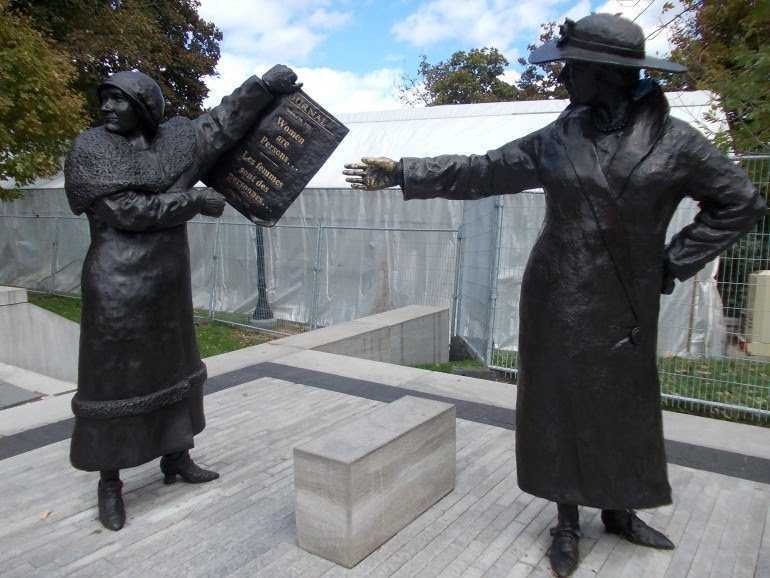In Canada, October 18 is set aside for remembering the brave women who fought to have their sisters included in the legal definition of ‘persons’ in the British North America Act so they could participate in our democracy. It was because of these five women from Alberta, dubbed the ‘Famous Five,’ that on October 18, 1929, women were finally given the right to be appointed to the senate.
One of the Famous Five, Emily Murphy, discovered an obscure provision in the Supreme Court of Canada Act that said any five persons acting as a unit could petition the Supreme Court for an interpretation of any part of the constitution – so the five women signed a letter petitioning the Supreme Court to look into the matter of whether the government could appoint a female senator.
These women were not deterred when, after five weeks, the court decided that the word ‘persons’ in the British North American Act of 1867 meant men, and so the five appealed their case to Canada’s then highest Court of Appeal: The Privy Council of Great Britain in London.
After a two-year legal battle, The Famous Five won their fight for the rights of Canadian women.
John Sankey, Lord Chancellor of Great Britain, announced the decision:
“The exclusion of women from all public offices is a relic of days more barbarous than ours. And to those who would ask why the word ‘person’ should include females, the obvious answer is, why should it not?”
Although this decision did not include Indigenous women, nor women of Asian heritage, it marked significant progress in the advancement of gender equality in Canada.
Emily Murphy, Nellie McClung, Irene Parlby, Louise McKinney, and Henrietta Edwards – these are all names we should know and never forget.
Every October 18, we honour their resolve and fearlessness, and recognize how their historic case helped facilitate women’s equal participation in all aspects of life in Canada. We also honour all those whose work in the years since then has expanded and strengthened those rights.




